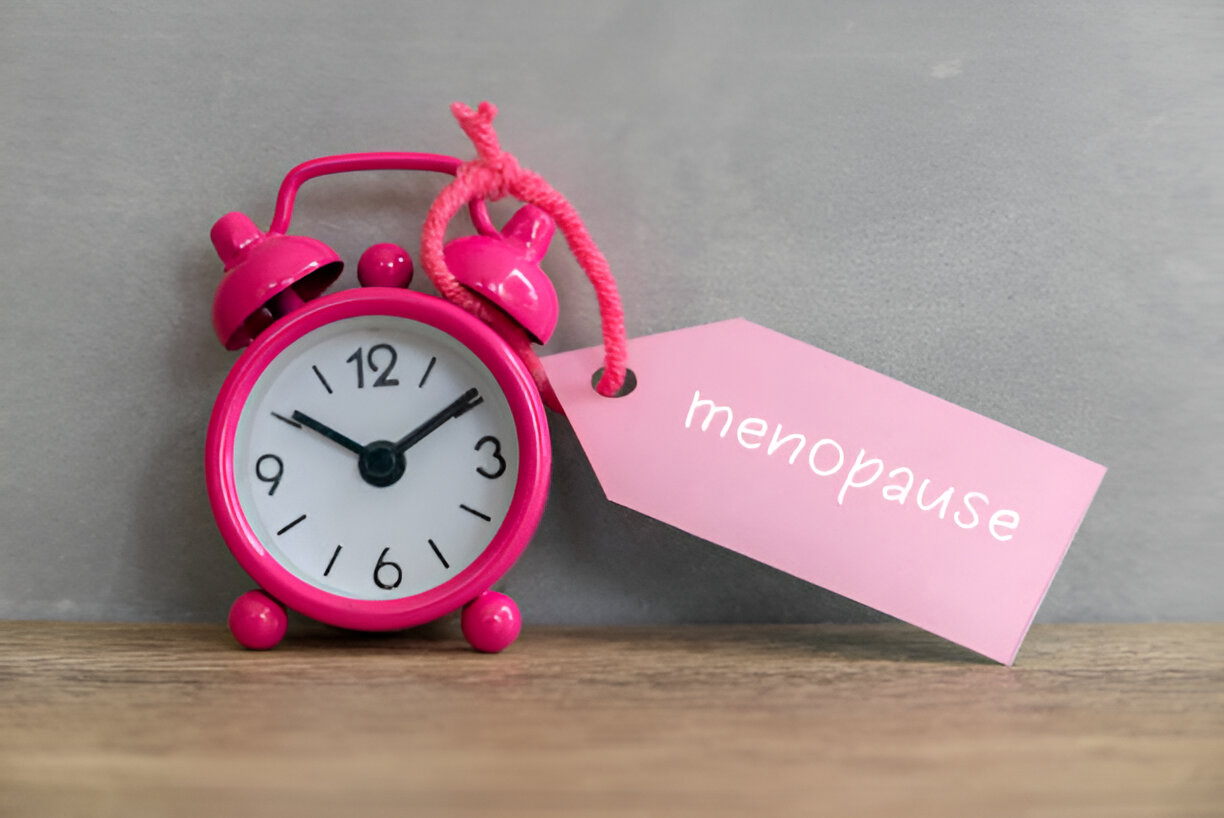Menopause is a natural phase of a woman’s life, yet it often comes with a whirlwind of changes that can feel overwhelming. Understanding the stages of menopause and the symptoms associated with it can empower you to manage your health better. At Peak Wellness Lounge in Woodland Park, CO, we are dedicated to helping you navigate this transition with confidence and ease.
What is Menopause?
Menopause marks the end of a woman’s menstrual cycles and is diagnosed after 12 consecutive months without a period. This typically occurs in women in their late 40s to early 50s but can vary widely. The process of menopause is divided into three stages: perimenopause, menopause, and postmenopause.
Perimenopause: The Prelude to Menopause
Perimenopause, or the menopausal transition, can start several years before menopause. During this time, the ovaries gradually begin to produce less estrogen, leading to various symptoms.
Symptoms of Perimenopause
- Irregular Periods: Changes in menstrual cycle frequency and flow are common.
- Hot Flashes and Night Sweats: Sudden feelings of warmth, often intense, especially at night.
- Sleep Problems: Difficulty sleeping or staying asleep.
- Mood Changes: Irritability, depression, and anxiety may increase.
- Weight Gain: Changes in metabolism can lead to weight gain, especially around the abdomen.
- Decreased Libido: Reduced interest in sexual activity.
- Vaginal Dryness: Thinning and drying of the vaginal walls.
Menopause: The Official Transition
Menopause is officially diagnosed when a woman has gone 12 months without a menstrual period. The average age for menopause is 51, but it can occur earlier or later.
Symptoms of Menopause
- Continued Hot Flashes and Night Sweats: Persistent and possibly more intense than during perimenopause.
- Vaginal and Bladder Issues: Increased risk of urinary tract infections and vaginal discomfort.
- Bone Density Loss: Higher risk of osteoporosis due to decreased estrogen levels.
- Heart Health Concerns: Elevated risk of cardiovascular disease.
- Skin and Hair Changes: Thinning hair and dry skin.
- Mental Health: Memory issues and difficulty concentrating.
- Postmenopause: Life After Menopause
Postmenopause begins immediately after menopause and lasts for the rest of a woman’s life. During this stage, menopausal symptoms may ease for some, while others may continue to experience symptoms like hot flashes and vaginal dryness.
Health Considerations in Postmenopause
- Bone Health: Increased focus on maintaining bone density through diet and exercise.
- Heart Health: Regular monitoring and maintaining a heart-healthy lifestyle.
- Hormone Replacement Therapy (HRT): Consideration of HRT to manage lingering symptoms and prevent long-term health risks.
The Role of Hormone Therapy in Menopause Management
Hormone therapy (HT) is a powerful tool in managing menopausal symptoms and improving quality of life. It involves supplementing the body with estrogen and sometimes progesterone to alleviate symptoms caused by hormonal imbalances.
Benefits of Hormone Therapy
- Reduction of Hot Flashes and Night Sweats: HT is highly effective in reducing the frequency and severity of these symptoms.
- Improvement in Vaginal Symptoms: Helps alleviate dryness, itching, and discomfort.
- Bone Health: HT can help prevent bone loss and reduce the risk of fractures.
- Mood Stabilization: Can improve mood swings, anxiety, and depression related to menopause.
- Improved Sleep: Better management of night sweats and anxiety can lead to improved sleep quality.
Risks and Considerations of Hormone Therapy
- Breast Cancer: Some studies suggest a slight increase in the risk of breast cancer with prolonged HT use.
- Heart Disease: Potential increased risk, particularly if HT is started several years after menopause.
- Blood Clots: Increased risk of deep vein thrombosis and pulmonary embolism.
At Peak Wellness Lounge, our experts can help you weigh the benefits and risks of hormone therapy and tailor a treatment plan suited to your individual needs.
Natural Approaches to Managing Menopausal Symptoms
For those who prefer non-hormonal options, there are various natural approaches to managing menopausal symptoms.
Diet and Nutrition
- Phytoestrogens: Foods like soybeans, flaxseeds, and tofu contain plant-based estrogens that may help balance hormones.
- Calcium and Vitamin D: Essential for bone health, especially postmenopause.
- Hydration: Drinking plenty of water to manage dryness and bloating.
Lifestyle Changes
- Exercise: Regular physical activity can help manage weight, improve mood, and strengthen bones.
- Stress Management: Practices like yoga, meditation, and deep breathing can reduce stress and improve overall well-being.
- Sleep Hygiene: Creating a restful environment and establishing a regular sleep schedule can improve sleep quality.
Herbal Supplements
- Black Cohosh: Commonly used to reduce hot flashes and night sweats.
- Red Clover: Contains isoflavones that may help with menopausal symptoms.
- Evening Primrose Oil: Used for managing mood swings and hot flashes.
The Emotional Impact of Menopause
Menopause is not just a physical transition; it can also take a significant emotional toll. Understanding and addressing the emotional aspects is crucial for overall well-being.
Common Emotional Symptoms
- Mood Swings: Fluctuations in hormone levels can lead to mood instability.
- Depression and Anxiety: Hormonal changes can trigger or exacerbate these conditions.
- Irritability: Increased sensitivity and irritability are common.
- Loss of Libido: Decreased interest in sexual activity can affect relationships.
Coping Strategies
- Support Groups: Connecting with others going through similar experiences can provide comfort and advice.
- Therapy: Professional counseling can help manage mood disorders and provide coping strategies.
- Mindfulness and Meditation: Techniques to stay present and reduce stress.
Seeking Professional Help: When to See a Hormone Therapy Specialist
While menopause is a natural process, severe symptoms can significantly impact your quality of life. It’s important to know when to seek professional help.
When to Consult an HRT Specialist
- Severe Hot Flashes and Night Sweats: If these symptoms are disrupting your daily life, medical intervention may be necessary.
- Emotional Distress: Persistent depression, anxiety, or mood swings should be addressed with a healthcare professional.
- Bone Health Concerns: If you are at risk for osteoporosis, a doctor can recommend appropriate tests and treatments.
- Vaginal and Bladder Problems: Persistent discomfort or infections require medical evaluation.
- Heart Health: Regular check-ups to monitor cardiovascular health are essential.
Personalized Care at Peak Wellness Lounge
At Peak Wellness Lounge, we offer comprehensive care tailored to your individual needs. Our team of experts is dedicated to providing personalized treatment plans, whether you opt for hormone therapy, natural remedies, or a combination of both.
Embracing the Menopausal Journey
Menopause is a significant life transition, but with the right support and information, it can be a manageable and even empowering experience. By understanding the stages and symptoms of menopause and exploring the various treatment options available, you can navigate this journey with confidence and grace.
At Peak Wellness Lounge in Woodland Park, CO, we are here to support you every step of the way. From personalized hormone therapy to natural management strategies, our goal is to help you achieve optimal health and well-being during menopause and beyond. Embrace this new chapter of your life with the knowledge and support you deserve.
Navigating menopause doesn’t have to be a daunting task. With the right information and support from healthcare professionals at Peak Wellness Lounge, you can manage symptoms effectively and maintain a high quality of life. Whether through hormone therapy, lifestyle changes, or natural supplements, there are numerous ways to find relief and embrace this new stage of life with confidence.
Linda Cecere, NP, DNP brings over 20 years of experience in holistic healing, from massage therapy and maternal care to leading global medical missions and earning her Doctor of Nursing Practice. She specializes in hormone health for men and women, medical weight loss, and functional medicine.



